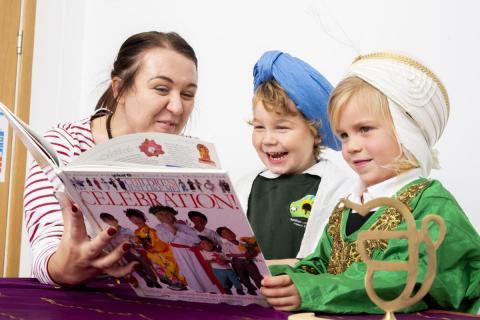
What is PSHE?
Personal, Social and Health Education is vital for pupils to learn how to keep themselves safe and healthy in an ever-changing world. Teaching PSHE is a key way that schools can ensure that pupils are receiving a wide and varied curriculum that is relevant to the lives they live today and prepares them for the future.
How do we teach it?
At Bentham Community Primary School, we follow a scheme of work called You, Me, PSHE. It provides clear and progressive coverage of key learning for children in Y1-6. It divides learning into 7 key strands and within each strand there are age appropriate topics for different year groups.
7 strands of learning:
- Sex and Relationship Education (SRE)
- Drug, Alcohol and Tobacco Education (DATE)
- Keeping Safe and Managing Risk
- Mental Health and Emotional Wellbeing
- Physical Health and Wellbeing
- Careers, Financial Capability and Economic Wellbeing
- Identity, Society and Equality
From September 2020, all primary schools must teach Relationships, Health and Sex Education at an age appropriate level. This learning is covered in:
- the above strands as part of the You, Me, PSHE scheme
- the Computing curriculum for Online Safety
- the Science curriculum for Animals, including Humans and Light
PSHE must also promote the Spiritual, Moral, Social and Cultural development of pupils and so the teaching of PSHE is supported and enhanced by our yearly SMSC action plan. See the attachment below for this academic year's SMSC action plan. In each term all 4 of these aspects are covered across school, from learning about different religions and cultures to understanding our moral obligations and different social issues in the world around us.
Further information
Below are links to additional information that you may find useful.
Online Safety
www.thinkyouknow.co.uk ... www.getsafeonline.org www.childnet.com ...
www.internetmatters.org www.nspcc.org
If you’re concerned about online grooming or sexual behaviour online, report it to CEOP at www.ceop.police.co.uk If you stumble across criminal, sexual or obscene content on the internet, you should report it to the Internet Watch Foundation at www.iwf.org.uk
Online Bullying
https://www.bullying.co.uk/cyberbullying/
https://www.nspcc.org.uk/what-is-child-abuse/types-of-abuse/bullying-and...
Social Media The age limit to join most social networking sites is 13.
https://www.internetmatters.org/resources/social-media-advice-on-popular...
Video games
https://www.askaboutgames.com/
https://www.empoweringparents.com/article/does-my-child-have-a-video-gam...
Drugs, alcohol and tobacco
https://youngminds.org.uk/find-help/for-parents/parents-guide-to-support...
Domestic abuse
https://www.victimsupport.org.uk/crime-info/types-crime/domestic-abuse
https://www.womensaid.org.uk/information-support/
Mental health
https://www.mentalhealth.org.uk/a-to-z/c/children-and-young-people
Physical wellbeing
https://www.nhs.uk/change4life
https://education.gov.scot/parentzone/learning-at-home/supporting-health...
Looking after your money
https://natwest.mymoneysense.com/home/
Being safe – fire, road, sea safety
https://www.think.gov.uk/education-resources/
https://www.rospa.com/Leisure-Safety/Water/Advice/Children-Young-People
Peer pressure
https://kidshelpline.com.au/parents/issues/helping-kids-and-teens-deal-p...
https://kidshealth.org/en/teens/peer-pressure.html
Stereotypes
https://www.childrenssociety.org.uk/news-and-blogs/our-blog/traditional-...
Bereavement
childbereavementuk.org
https://www.winstonswish.org/
Growing up
https://www.nhs.uk/live-well/sexual-health/stages-of-puberty-what-happen...
https://www.rcpsych.ac.uk/mental-health/parents-and-young-people/informa...

